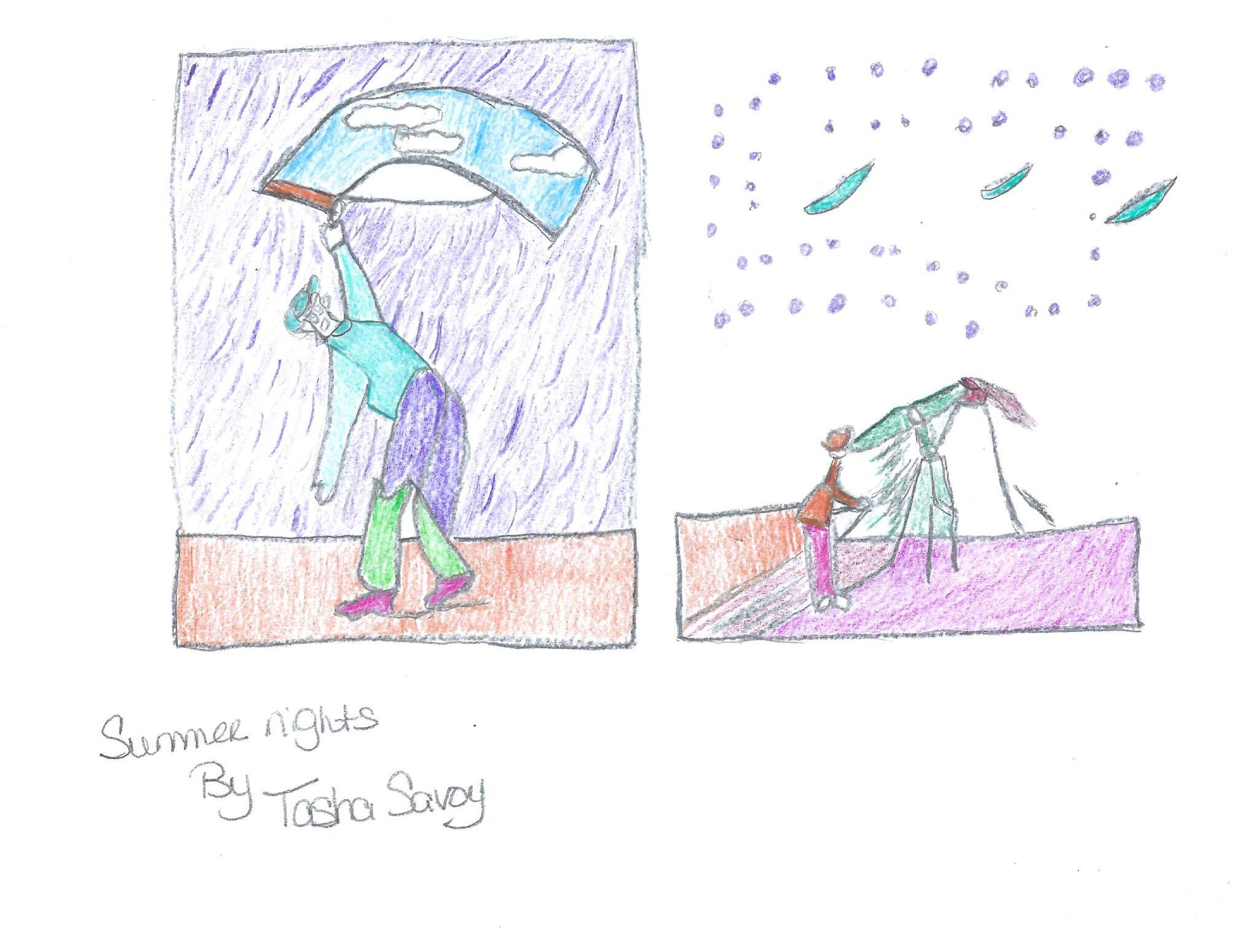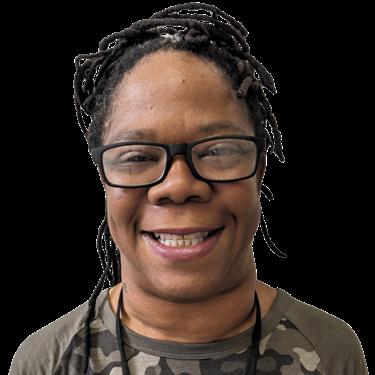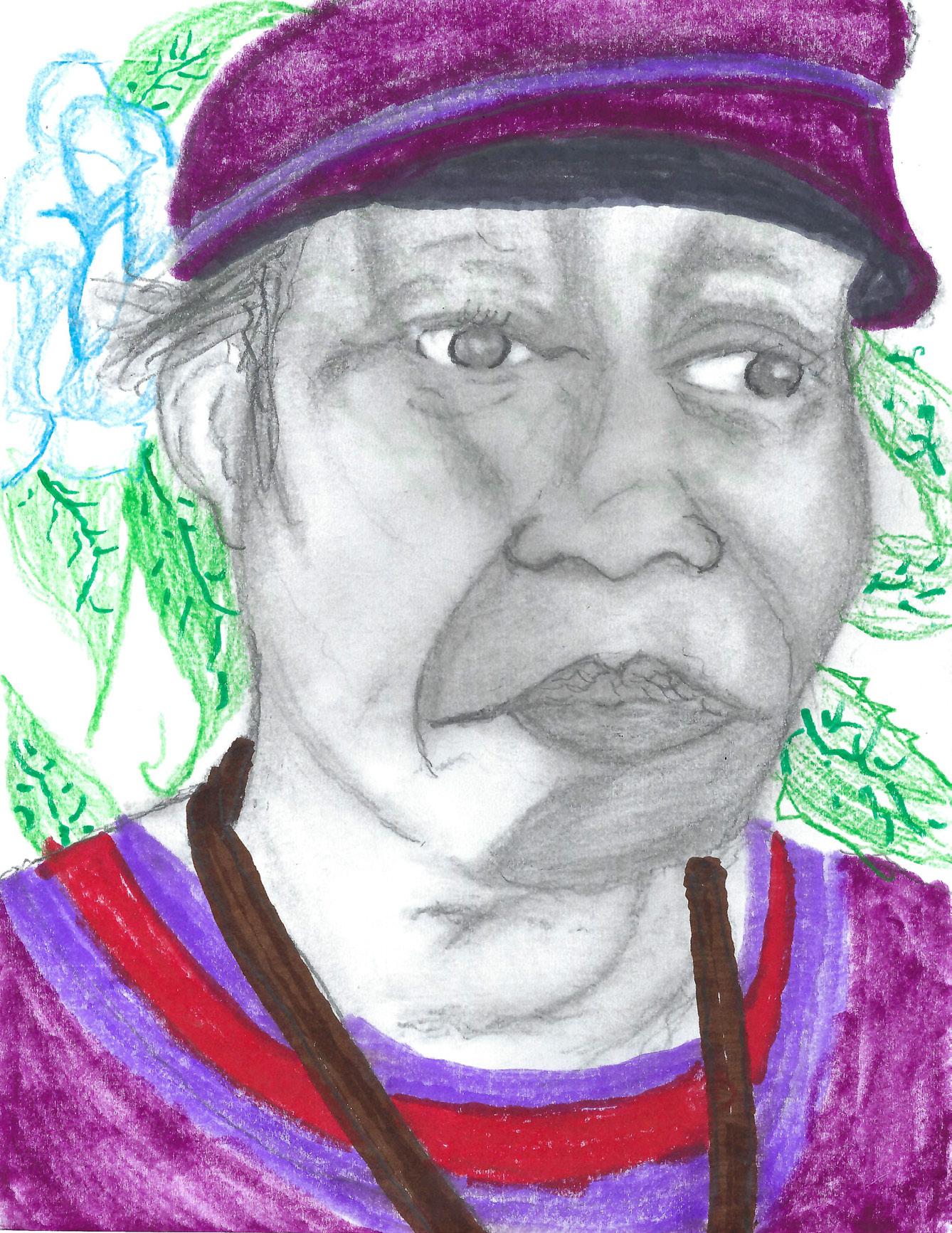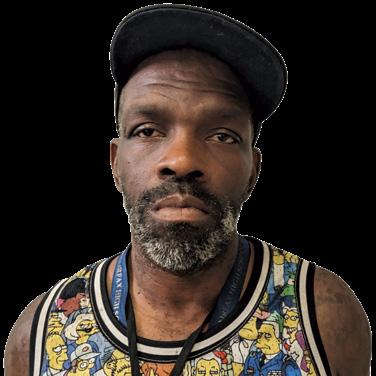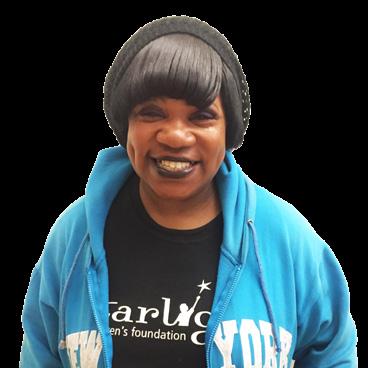




In 2013, we began offering case management services to help anyone, including vendors, with their needs — from obtaining identification cards and emergency cash for bills and food to accessing supportive programs and applying for housing vouchers. Our team builds long-term relationships with our vendors and other clients to understand their needs and help them create plans to achieve their goals.

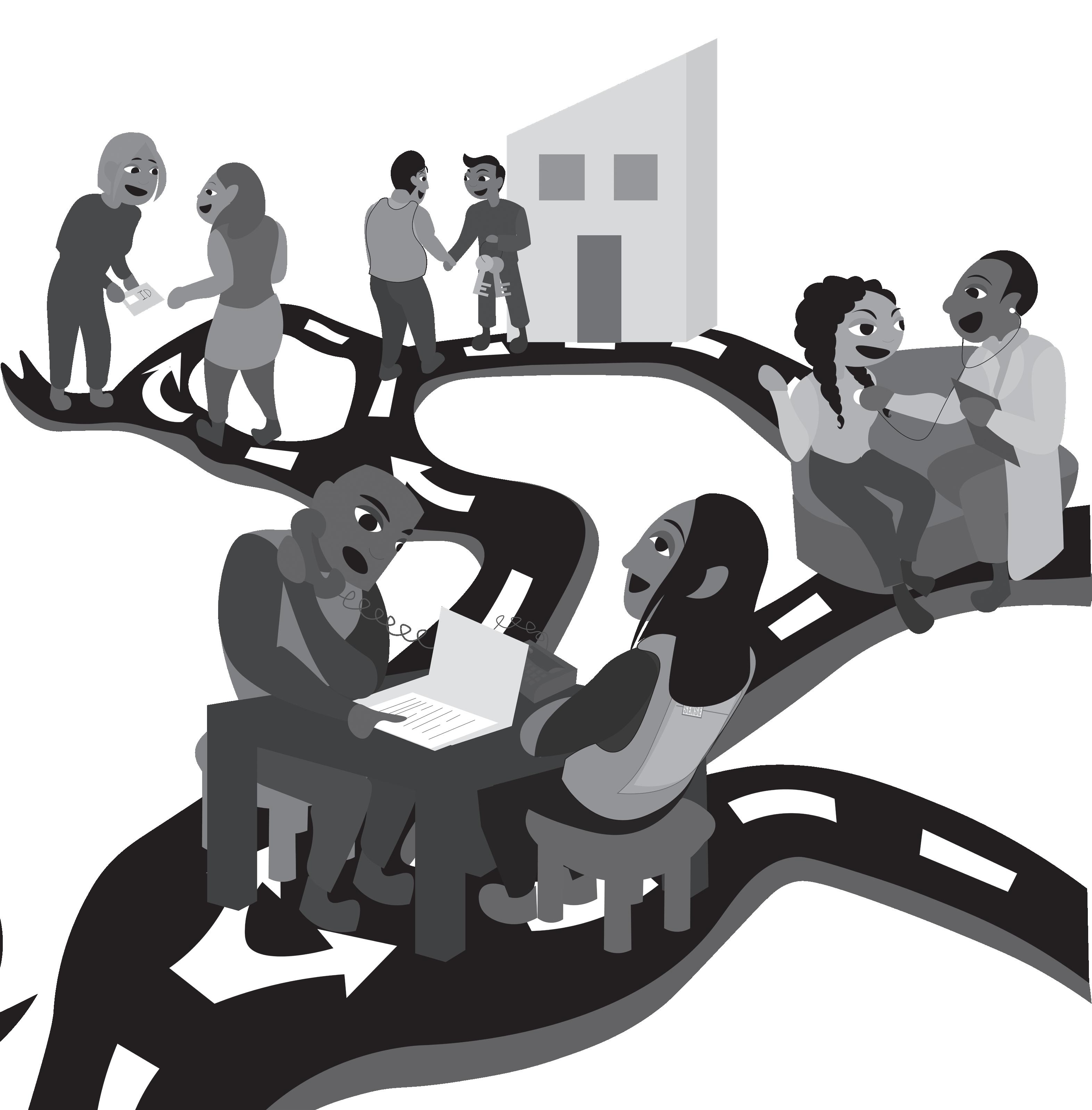

Abel Putu, Abraham Aly, Aida Peery, Akindele Akerejah, Amia Walker, Andre Brinson, Andrew Anderson, Angie Whitehurst, Anthony Carney, Beverly Sutton, Brianna Butler, Cameé Lee, Carlos Carolina, Carlton Johnson, Charles Armstrong, Charles Woods, Chon Gotti, Chris Cole, Conrad Cheek, Corey Sanders, Darlesha Joyner, David Snyder, Debora
Brantley, Degnon “Gigi” Dovonou, Dominique Anthony, Don Gardner, Donte Turner, Eric Thompson-Bey, Erica Downing, Evelyn Nnam, Faith Winkler, Frederic John, Frederick Walker, Gerald Anderson, George Gray, Gracias Garcias, Greta Christian, Henrieese Roberts, Henry Johnson, Invisible Prophet, Ibn Hipps, Ivory Wilson, Jacqueline “Jackie” Turner, Jacques
Collier, James Davis, James Hughes, Jeanette Richardson, Jeff Taylor, Jeffery McNeil, Jeffrey Carter, Jemel Fleming, Jenkins Dalton, Jennifer McLaughlin, Jet Flegette, Jewel Lewis, John Littlejohn, Josie Brown, Juliene Kengnie, Kenneth Middleton, Kym Parker, L.Q. Peterson, Laticia Brock, Lawrence Autry, Levester Green, Marc Grier, Marcus McCall, Martin Walker, Maurice Carter,
Maurice Spears, Melody Byrd, Micheal Pennycook, Michele Modica, Morgan Jones, Nathanial Piscitelli, Nikila Smith, Patricia Donaldson, Patty Smith, Phillip Black, Queenie Featherstone, Rachelle Ellison, Randall Smith, Rashawn Bowser, Reginald Black, Reginald Denny, Ricardo Meriedy, Rita Sauls, Robert Vaughn, Robert Warren, Rochelle Walker, Ron Dudley, S. Smith,
Sasha Williams, Saul Presa, Shawn Fenwick, Sheila White, Shuhratjon Ahmadjonov, Starchild Blk, Sureyakanti Behera, Susan Wilshusen, Sybil Taylor, Tasha Savoy, Tony Bond, Tonya Williams, Vennie Hill, Vincent Watts, Warren Stevens, Wayne Hall, Wendell Williams, Wendy Brown, William Mack
BOARD OF DIRECTORS
Ashley McMaster, Blake Androff, Clare Krupin, Corrine Yu, Jonquilyn Hill, Matt Perra, Michael Vaughan Cherubin, Michael Phillips, NanaSentuo Bonsu, Shari Wilson, Stanley Keeve
CHIEF EXECUTIVE
OFFICER
Brian Carome
Tad Holt died earlier this year. Holt experienced homelessness in D.C., living in encampments across the city before moving into housing a few months before his death. Here’s how his community remembers him.
We first met Tad in December of 2022, on a cold winter morning when the National Park Service was evicting Tad and his unhoused neighbors from an encampment in Fort Reno Park. Tad purposefully slowed his pace, giving his friends more time to move their belongings before they were trashed by federal workers. Anyone who knew Tad will understand what we mean when we say he was complicated. But everyone who knew Tad would also know how kind he was and how he always looked after his friends living outside. When we stopped by his encampment in Foggy Bottom, we could leave food and supplies with him, trusting that he would give them to unhoused people who were not around. He was warm and protective of the people who helped him. I’m sure anyone who spent more than five minutes with Tad has been engulfed in one of his wild, captivating stories. He would often invite us to sit and chat, and before we knew it, 30 minutes had passed. We don’t know much about Tad before he became homeless, but we will never forget how he was able to bring a smile to our faces and the way he cheered up his friends struggling with the ever-present trauma of homelessness. Tad was complicated. Tad was kind. Tad was funny. He will be missed. Rest in peace friend
- Remora House, mutual aid organization
Tad: When I first met you, all you kept saying was “You’re going to get rid of me like everyone else. That’s why I’m still outside 20 years later.” The more I came around, the more you opened up. I remember bringing you some snacks, and you were coloring your hair purple, and you said “Cyria, you can’t leave me now. You’re stuck! You pop up on me like a pop up shop.” You literally had a joke for any and everything I said. Tad. You broke my heart with this one. You were the sweetest individual ever. If I was looking for a client, you knew exactly where they were. Any client or person that disrespected me, you always put them in their place. Thanksgiving day, I brought the encampment Thanksgiving food, and you said “Cyria, they don’t make case managers like you. You have a family of your own, but treat everyone else more like family.” Tad, I’ll forever be here.
- Cyria Knight, case manager at Miriam’s Kitchen
□ The Street Sense Media office will be closed Monday, Nov. 11, for Veterans Day.
□ Is the office closed for a holiday, bad weather, or political event? Call the front desk (x101), check your texts or emails from Thomas, or go to the vendor announcements page at streetsensemedia. org/vendor-info. And make sure Thomas has your current contact info!
□ Two more weeks to take the vendor survey! $10 and 10 papers for 10 minutes of your time. Sign up at the admin desk.
Editor’s Note: Street Sense is publishing these remembrances because our community wanted to honor Tad Holt. If you have memories of him you’d like to share, or want us to help remember another person who died while or after experiencing homelessness, please email editor@streetsensemedia.org.


Andre Brinson
Nov. 9
ARTIST/VENDOR
George Gray
Nov. 14
ARTIST/VENDOR
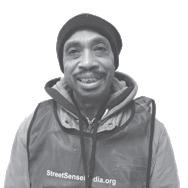

Jeffery Carter
Nov. 16
ARTIST/VENDOR
Degnon Dovonou
Nov. 17
ARTIST/VENDOR
Read this democratically elected code of conduct, by vendors, for vendors!
1. I will support Street Sense Media’s mission statement and in so doing will work to support the Street Sense Media community and uphold its values of honesty, respect, support, and opportunity.
2. I will treat all others, including customers, staff, volunteers, and fellow vendors, respectfully at all times. I will refrain from threatening others, pressuring customers into making donations, or engaging in behavior that condones racism, sexism, classism, or other prejudices.
3. I understand that I am not an employee of Street Sense Media but an independent contractor.
4. While distributing the Street Sense newspaper, I will not ask for more than $3 per issue or solicit donations by any other means.
5. I will only purchase the newspaper from Street Sense Media staff and volunteers and will not distribute newspapers to other vendors.
DIRECTOR OF PROGRAMS
Darick Brown
DIRECTOR OF VENDOR EMPLOYMENT
Thomas Ratliff
VENDOR PROGRAM ASSOCIATES
Aida Peery, Chon Gotti, Nikila Smith
VENDOR PROGRAM VOLUNTEERS Ann Herzog, Beverly Brown, Madeleine McCollough, Roberta Haber
EDITOR-IN-CHIEF Annemarie Cuccia
DEPUTY EDITOR Donte Kirby
EDITORIAL INTERNS Fiona Riley, Tierra Cunningham
GEORGETOWN CONTRIBUTING WRITER Carolina Bomney
DESIGN INTERNS Kevin Alexander, Jihoo Yang
SOCIAL MEDIA INTERN Madi Koesler
ARTISTS-INRESIDENCE
Bonnie Naradzay (Poetry), David Serota (Illustration),
Leslie Jacobson (Theater), Roy Barber (Theater), Willie Schatz (Writing)
EDITORIAL VOLUNTEERS
Abigail Chang, Andrew Chow, Annie Hoge, Anne Eigeman, August Dichter, Benjamin Litoff, Candace Montague,
Cari Shane, Chelsea Cirruzzo, Dan Goff, Franziska Wild, Grier Hall, Jack Walker, J.M. Ascienzo, Josh Axelrod, Kate Molloy, Kathryn Owens, Matt Gannon, Micah Levey, Nina Raj, Rachel Dungan, Ryan Bacic, Susannah Birle, Taylor Nichols, Zach Montellaro
6. I will not distribute copies of “Street Sense” on metro trains and buses or on private property.
7. I will abide by the Street Sense Media Vendor Territory Policy at all times and will resolve any related disputes with other vendors in a professional manner.
8. I will not sell additional goods or products while distributing “Street Sense.”
9. I will not distribute “Street Sense” under the influence of drugs or alcohol.
10. I understand that my badge and vest are property of Street Sense Media and will not deface them. I will present my badge when purchasing “Street Sense” and will always display my badge when distributing “Street Sense.”
DONTE KIRBY Deputy Editor

Three D.C. families are suing the city for ending their rental subsidies, potentially forcing them into homelessness.
The families, who until recently rented housing with the help of D.C.’s Rapid Rehousing (RRH) program, were removed from RRH along with hundreds of other families earlier this year. They are asking to be reinstated in the program, citing a lack of due process along with claims the city had the funds to keep families in the program “yet chose, arbitrarily and capriciously, not to consider individual extensions,” according to the lawsuit.
RRH is a short-term subsidy that pays a portion of a family or individual’s rent for a marketrate apartment over a year, with the possibility of a six-month extension. The lawsuit claims the city broke a 2023 law that amended RRH and required the city to consider extensions of the time-limited program on a case-by-case basis when the Department of Human Services (DHS) decided to mass exit 2,200 families from the program earlier this year. According to Amber Harding, executive director of the Washington Legal Clinic for the Homeless, families who were removed from the program received an exit letter that included language denying them the right to be considered for extensions.
“Families are individuals with individual concerns and needs, and just saying with a broad stroke nobody gets extensions is an incredibly harmful, and we think unlawful, practice,” Harding said.
Plaintiffs Angel Gregory, Sierra Moore, and Britne Thomas are represented by the Washington Legal Clinic for the Homeless and the D.C. Children’s Law Center in the suit, filed on Oct. 22 with the Office of Administrative Hearings. The nonprofit law firms are aiming for certification to make the case a class action lawsuit and include all 816 families removed from RRH between April and June, according to Harding.
The case is the first class action lawsuit to be filed in the Office of Administrative Hearings. If it is certified, other families exited from RRH can join the case and be eligible for any remedies, like reinstatement in the program. The process is uncharted territory, Harding says, so she’s unsure how long the whole case will take. But in her mind, it’s the best way to help all the exited families maintain their housing.
Many families enter RRH from a homeless shelter, and the program is a lifeline allowing them to get stable housing. Once it’s gone, families struggle to stay afloat.
Britne Thomas, a 35-year-old mother of two, used RRH to move out of a shelter in 2020. Like many other families, she received extensions throughout the pandemic to keep her family
housed. But now the city claims these extensions are why the program has ballooned and become unsustainable.
Thomas has had three jobs throughout the program, which aims to help families get back on their feet and increase their income, a feat few families achieve. Thomas said before she even joined the program, she heard from other people who had been through RRH that it was a “set-up.” The program helps you move in, but then you can’t afford the rent, and you end up back in the shelter, they said.
“I’m not going to say they haven’t been a help, because where would [I be] without them paying that portion of my rent, but at the same time, where am I now?” Thomas asked.
Thomas said she is perpetually underemployed in an apartment she can’t afford. The program hasn’t paid her rent since June, so she’s waiting for the inevitable eviction notice that will mean her next stop is a shelter unless she can find friends or family to live with.
“It’s not just me, there’s really people going back to the shelters,” Thomas said. “And that’s a place I don’t want for nobody. Even though it’s not as bad as people make it seem, I wouldn’t want that for nobody.”
In 2018 and 2019, that was the case for many families, as 42% of the people who exited the RRH program then returned to the homeless services system, according to a report prepared by the Community Partnership for the Prevention of Homelessness and cited in an article on the failures of RRH by the Washington City Paper.
In 2024, the cycle of homelessness continues. DHS is in shelters offering RRH to new families, even as it removes 2,000 families from the program and claims there’s no funding for the housing vouchers set aside in the budget to keep families being exited from the program off the streets.
A DHS spokesperson said the agency does not comment on active litigation.
Families who were removed from the program have likely lost other benefits as well. During the pandemic, the nearly $30,000 on average that went to many low-income D.C. families was a lifeline that kept many from facing food and housing insecurity, and now the families are again struggling to make ends meet, according to a new report from the United Planning Organization and broken down by Street Sense.
“If this last year has shown anything it’s how dysfunctional this program and how badly in need of reform it is,” Harding said. “Unfortunately it just keeps getting worse and more and more harmful to families. We’ll do everything we can to mitigate that, but the program needs to be reformed.”
FIONA RILEY Editorial Intern
Animal rights advocates and community members are asking for D.C. to establish a pet-friendly shelter — but the city is pushing back.
On Oct. 8, the D.C. Council Committee on Housing held a public hearing for a proposed bill that would require District officials to offer at least one pet-friendly shelter and limit the fees landlords can charge tenants with pets. More than 30 community members, animal advocates, and nonprofit organization leaders testified in support of the bill at the three-hour-long public hearing, arguing it would allow more people who are experiencing homelessness or housing instability to keep their furry friends. But the Department of Human Services (DHS), which is responsible for shelters in D.C., said it doesn’t support the proposed legislation.
If passed, D.C. Councilmember Robert White’s Pets in Housing Act would cap pet rent at $25 and pet security deposits at $300, ban breed-specific fees or restrictions, and require DHS offer at least one pet-friendly low-barrier shelter.
But, “our provider network does not have the expertise or staffing or contracted responsibilities to care for pets in shelters,” DHS Director Laura Zeilinger said at the hearing, adding that DHS does not view pets in shelters as a “large unmet problem,” and can’t commit significant resources to the project. Zeilinger recently announced she’s stepping down at the end of the year, but is still with DHS at the time of publication.
Several animal advocacy group leaders — including the American Society for the Prevention of Cruelty to Animals (ASPCA), The Humane Society of the United States, GW Law School Animal Welfare Project, Pet Advocacy Network, The Animal Legal Defense Fund, and The Animal Policy Group — testified in support of the proposed legislation, saying it would reduce instances where people experiencing homelessness are forced to relinquish their pet to enter the shelter system. More than one-third of people in D.C. have a pet, according to Executive Director of D.C. Voters for Animals Max Broad, and people in D.C. send thousands of cats and dogs to animal shelters because they can’t find a place to live affordably with their pets, according to ASPCA Senior Director of Housing Policy Susan Riggs. The District permits people with registered service animals to bring the animal into some shelters, because officials determined they’re “not considered pets,” but does not allow other animals in shelters. According to Lynn Amano, the director of advocacy at Friendship Place, many people experiencing homelessness feel they have no choice but to relinquish their pets to access shelter, which is detrimental to them and the animals. She said as the city works to grow the number of available shelter beds, it needs to ensure at least some rooms are pet-friendly.
She said many people have allergies or phobias to animals, and get upset when they’re asked to relocate.
“It would be challenging to prioritize this given it hasn’t shown up as a significant need in our community over other issues where we do need resources,” Zeilinger said.
In addition to creating a pet-friendly shelter, the bill would make it easier for tenants with pets to afford housing, Broad said, arguing additional pet fees and restrictions make it even harder for people to find affordable housing options, which can lead to people giving up their pets.
According to Animal Legal Defense Fund Strategic Legislative Affairs Manager Alicia Prygoski, a recent Pet Friendly Housing Initiative report revealed 72% of renters in the U.S. said pet-friendly housing is difficult to find, and only 8% of pet-friendly housing does not have restrictions or fee differentiation based on breed. She said reducing fees would encourage adoptions and lessen tenant turnover caused when people realize they want a pet.

“The Pets in Housing Act would make Washington, D.C. a more equitable and humane city for humans and animals alike,” Prygoski said.
Ward 5 Resident Melissa Baines said she was “severely restricted” when searching for housing in D.C. because she has two cats. She said high fees disproportionately affects people who earn a lower income, and urged everyone in the room to help people stay with their pets regardless of their economic status.
“The act would remove significant barriers to having pets in housing and reduce the devastating trend of housing-related pet surrenders,” Riggs said. In order to strengthen the protections, she suggested the bill include that pet deposits be returned to the tenant within 45 days, assuming the money isn’t required for repairs related to their pet.
Several people, including Broad, said they supported measures in the act partially because many pet owners rely on an animal for emotional support or companionship.
“We can prevent situations in which somebody must make the impossible choice between a roof over their head and their beloved companion,” Broad said.
Joan Schaffner, the director of George Washington University Law School’s Animal Welfare Project — which helped develop the legislation alongside White — agreed pets provide “essential emotional support,” and forcing people to relinquish them for cheaper housing options or a shelter is dangerous for the owner’s wellbeing and harmful to the pet.
As a result of current fees and breed restrictions, Kate Finman, a Ward 6 resident and member of Volunteers for HRA Reform, said shelters in D.C. are “overflowing” with animals because owners who love their pets are forced to relinquish them.
“Providing temporary and short-term shelter for individuals with pets while they await housing is a logical extension of the types of non-congregate shelter we are developing in the District,” Amano said.
Though advocates commonly say pets are one of three main reasons — along with partners and possessions — some people choose not to seek shelter, Zeilinger said staff haven’t heard of a “significant number” of people declining to enter a shelter because of their pet. Zeilinger also said the program would be too “resource intensive” — citing cleaning and pet supplies costs — and pose health and safety risks for shelter residents.
During his questioning, White asked Zeilinger whether DHS has received complaints from shelter residents and staff members who are currently around people with support animals.
“People should not have to choose between the safety of a roof and getting to keep their beloved animals, and a hard situation should never be made harder with impossible decisions about the pet’s life,” Finman said.
After more than 30 pet owners and advocates spoke in support of the act, White ended the hearing by asking Zeilinger for specifics on what DHS would need to see to enact the legislation. He asked whether DHS had comments on pet rental fees, but Zeilinger said she only came to talk about the shelter.
White said he would review challenges DHS raised with implementation, the price of creating a pet-friendly shelter, and safety issues, and encouraged people to continue submitting public testimony. The bill will likely not pass before the end of the council period in December, but White could reintroduce it next year.
addressed most of the “horrifying” 2022
report, but residents say progress is still needed
CAROLINA BOMENY Georgetown Contributing Writer
Nothing seemed to be off-limits at the eight-hour D.C. Council Housing Committee Oversight Roundtable on Oct. 22. The D.C. Housing Authority (DCHA) faced intense scrutiny and a glimpse of praise from residents, advocates, and community leaders on its reform efforts.
The roundtable, the sixth of its kind in the past two years, was not only a critical checkpoint for DCHA’s reform progress, but also a forum to hear from over 60 public witnesses whether policies were improving the everyday lives of public housing residents and voucher holders. As the city’s largest landlord, over 50,000 District residents rely on DCHA for affordable and safe housing.
The housing authority has solved 75% of the 113 issues found in a 2022 U.S. Department of Housing and Urban Development (HUD) report, according to Committee on Housing Chair Robert White. The report, which dinged the housing authority for issues like unliveable units in its public housing properties, low occupancy rates, and poor management of its voucher programs, set off two years of heightened oversight of the agency, including the October hearing.
According to White, some of the issues found in the report that the agency has addressed include new leadership and senior management; increased transparency and accountability around budgets and salaries; allocating millions of dollars to improve public housing; and reengaging residents through in-person meetings and office hours. While voucher utilization and public housing occupancy rates have also risen considerably, delayed lease-ups and poor overall communication still need to be resolved, according to White.
While community members who testified praised the achievements of DCHA’s Executive Director Keith Pettigrew’s first year, they were clear the agency still has a long way to go. Pettigrew replaced the embattled former Executive Director Brenda Donald in 2023.
Dozens of witnesses expressed concerns about the need for more clarity and communication around the agency’s new three-year recovery plan, the agency’s lack of transparency regarding the process for setting rents for housing vouchers, and the lack of resident representation in DCHA’s Stabilization and Reform (STAR) Board.
In June, Pettigrew released DCHA’s Three-Year Recovery Plan, outlining goals for each of the agency’s 14 departments. White criticized the lack of specific timelines for many of these goals, saying he expects Pettigrew to release a written update of the plan with more concrete timelines in December. However, service providers and advocates, including Empower D.C.’s Housing Director Daniel del Pielago, say tenants have not been fully informed about the plan’s rollout and its consequences. The plan includes potential changes to subsidies and the process of repositioning — converting public housing units into other rental assistance programs, which could involve selling buildings or extensive construction.
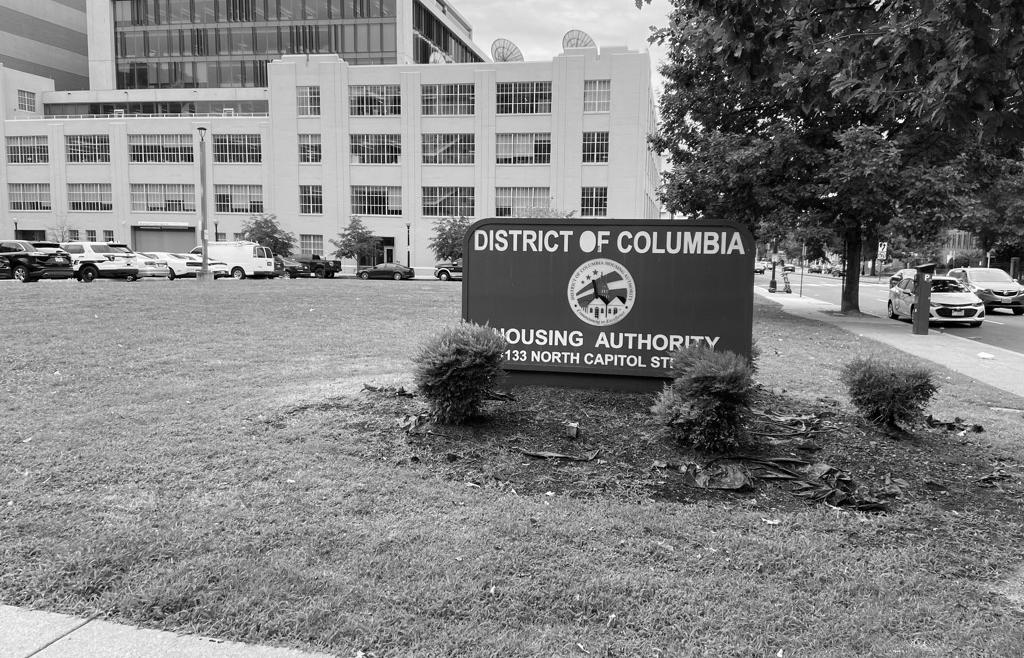
“This makes public housing residents feel left out of important plans that will affect their housing and their lives,” del Pielago said.
Ahead of the December update on the plan’s implementation, DCHA shared the three main time-sensitive and measurable goals White asked it to prioritize and update the council on: raising public housing occupancy rates, increasing voucher utilization, and reducing the lease-up timeline. As of September, the agency met the first two goals.
In the last year, residents moved into 790 public housing units, raising the public housing occupancy from 74% to 84%, beating the agency’s goal of 83% occupancy by the end of December 2024. About 1,200 units are still available, excluding the 1,700 units that need more than a month to be fixed from unlivable conditions and the 500 that will be demolished or dispositioned rather than brought back.
While DCHA also reached its goal of 85% voucher utilization, 2,400 voucher holders still need to be connected to housing, according to Pettigrew. Out of these 2,400, 1,100 have federal vouchers and 1,300 have vouchers issued by the city. Many voucher holders are experiencing homelessness or housing instability as they search for a unit, leading to the third goal, which is to reduce the local voucher lease-up timeline to 75 days on average. As of September, the average timeline was 91 days.
Jamar Byrd Bey, a multi-generation Washingtonian who is currently homeless, reminded the council of the people behind the data and the importance of addressing D.C.’s housing problem.
Byrd Bey said he spent over $100 in application fees — money he said he didn’t have and was the difference between going hungry or not — after receiving his voucher in April, only to finally get an approved apartment and lose it, because DCHA failed to inspect it within six to eight weeks and the landlord leased it to someone else.
“You all here on the council and committees, you need housing to do your job because you need to be mentally stable in order to handle all these problems that people are coming at you with and trusting you to solve,” he said. “So I think that every one of you guys should be able to understand how housing, adequate housing, affects the mental health of a person, and allows them to be successful in life, in the world.”
One issue potentially causing delays for the 2,400 voucher holders who still need to find an apartment is rent reasonableness. Since July 2023, DCHA has used the process to approve voucher leases, considering an apartment’s location, size, type, age, amenities, and utilities to determine whether the rent the landlord is asking for is reasonable. The housing authority began using rent reasonableness in 2023 after HUD said the agency’s past process for checking rents was too lenient.
DCHA reviews rent for reasonableness using AffordableHousing.com software after a lease application is submitted and then informs the landlord and prospective tenant of the result. While there is a public tool on AffordableHousing.com that can be used by anyone to gauge what prices have been accepted at similar properties, it is not a precise measure of each individual apartment’s differences.
“Two identical units in the same building can have different rent reasonableness outcomes because they’re based on different comparable units each time a search is generated,” Kelly Sweeney McShane, president and CEO of Community of Hope said.
Witnesses argued that knowing if a unit is rent reasonable earlier would spare residents from paying non-refundable fees for applications that might ultimately be denied.
According to McShane, the wait time between application submission and DCHA’s rent reasonability check often surpasses 30 days. This, she said, creates undue stress in an already complicated process and often results in families and individuals losing housing opportunities.
DCHA Deputy Executive Director Nicole Wickliffe said that before the end of the year, DCHA will have staff available to run rent reasonableness for landlords in advance of a tenant applying. If a landlord has all the information necessary to run the program, it can be done in 10 to 15 minutes, according to Wickliffe.
The 2022 HUD report underscored significant mismanagement within DCHA, citing failures in providing maintenance and liveable housing. The findings prompted the D.C. Council to vote to replace the previous 13-member DCHA board with a temporary, nine-member, and two non-voting participants, Stabilization and Reform (STAR) Board in early 2023.
While the previous board had three elected public housing residents, the new structure only has one voting resident, leaving many residents feeling underrepresented.
Linda Brown, who lives in Greenleaf Senior with her adult daughter, was one of several people in the meeting to decry the lack of representation on the board.
“The board’s lack of resident elected commissioners is a major concern. There needs to be residents’ elected commissioners from the following property types: seniors, the disabled, family, and current actual voucher holders,” Brown said, referencing the structure of the old DCHA board. “Why I’m concerned is I don’t feel represented, especially in those decisions that limit the ability to live in safe environments inside and out.”
The temporary STAR Board recommended implementing a new permanent seven-member board starting in 2026 in a report to the mayor and the council, according to STAR Chairman Raymond Skinner. Skinner said at the hearing the preliminary recommendation includes only one public housing resident, the current resident of the Citywide Resident Advisory Board, who is elected by residents, and a voucher holder, appointed by the mayor and confirmed by the council.
This limited representation has led to distrust and frustration among residents.
“How can public housing residents be fairly represented with one vote on the entire board?” ANC 6D Commissioner Rhonda Hamilton said. “If we don’t share our stories from our own mouth someone else will tell their own versions of the truth. The suffering of the people in the city from policies, dysfunctional systems, and ineffective agencies runs deep and cannot be sugar-coated.”

ANDREW ANDERSON Artist/Vendor
few weeks ago, I was invited to attend a conference on housing strategies. To my surprise, many people showed up and were eager to engage in a healthy discussion about the problem of housing instability. I hope to be as keen to learn why housing instability is such an issue here in Washington, D.C., and why this city is failing to address problems such as homelessness, affordable housing, and poor housing conditions.
Before our session began, I met with some of the other participants and raised a question about homelessness. I didn’t want the question to sound like a plan or a call to action; I wanted to understand this issue more. So, I asked why housing homeless people is difficult. One answer caught me off guard. “Homeless people don’t want to be housed,” one person said. I thought this couldn’t be true, and I wondered why someone would choose homelessness over getting a house. I wanted to continue this conversation, but the session had begun.
As the session began, I took a small sip of my flavored coffee. I felt excited because I was participating in a conversation that mattered for the first time. I began to take notes. I wanted the moderator to inspire and give me hope. The moderator suggested changing how we talk about homelessness, including the language used to describe people’s experiences. Words like “hobo” and even “homeless” should be retired. That is an excellent point. After 30 minutes, we took a break. My coffee was getting low, so I headed back to refill it. For some reason, the taste of French Vanilla allowed me to think clearly. The next session began with talking about affordable housing and how to ensure adequate supply. It is calculated that home prices are higher now, by about 47%, than they were in 2023, according to a CNBC report. What does this mean for D.C.? Will more people experience homelessness as a result of the high cost of housing? These issues made me think about the housing supply here in D.C. and why it’s inadequate for low-income people. Should the District government do a better job of housing low-income people? It’s something to think about.
Next, we moved to the issue of poor housing conditions. Some have suggested that the D.C. Housing Voucher Program needs to be audited and replaced. Far too often, we hear stories about families living in deplorable housing conditions, such as mold, rodents, and insects. Some of these housing conditions have led to poor health problems like mental health, high blood pressure, asthma, and other health issues associated with these housing conditions. Some landlords are collecting rent from the D.C. Housing Authority and are not doing much to help change these worsening housing conditions.
The moderator clarified the point, and we all broke into small groups to discuss the next steps. It would be disastrous if I tried to sum up my concerns regarding this last topic in one word.
After the break, I returned with another cup of my favorite coffee. The small groups comprised five or so individuals, so we focused on the prevention of poor housing conditions. It was hard for me to understand why it took so long for most people to resolve the issue of worsening housing conditions. It was said that if you complain, it just makes the problems worse, but now I am raising the question of how. No one would just accept living like this. It doesn’t make sense. Another person questioned the legal action. Can someone sue a landlord, and if so, on what grounds?
The group was genuinely asking real questions, which made me feel hopeful. The small session ended, and we all gathered to conclude day one. Looking back, I came away with much more than I had hoped. I’m waiting for the next session about case management and the difficulties of housing the unhoused.
CAROLINA BOMENY, TIERRA CUNNINGHAM Georgetown Contributing Writer and Editorial Intern
C. closed threefour encampments from D.C. closed three encampments from Oct. 9 to Oct. 24 and did what the city refers to as “full clean-ups” at five others.
Across the month, city staffers trimmed grass, picked up trash, threw away tents, and even involuntarily hospitalized an encampment resident.
On Oct. 9, a man silently stood by his belongings under a federal building on 3rd Street NW. D.C.’s Office of the Deputy Mayor for Health and Human Services (DMHHS) had scheduled a clean-up at his encampment for that morning. Normally, this would mean the resident had to temporarily move for the city to clean the area, but could move back after. But the man, who declined to speak to Street Sense or city officials, refused to leave, move his belongings, or speak with outreach workers for around 20 to 30 minutes.
Two Metropolitan Police officers, carrying out a request from the Department of Behavioral Health’s (DBH) Community Response Team to involuntarily hospitalize the resident, asked the man to step away from his belongings. They handcuffed him when he did not respond to repeated requests to move and just stood there with his hands in the air, and escorted him away in a police vehicle. Once the man was gone, city employees threw all of his belongings into a garbage truck and sprayed the area with a cleaner.
A DBH spokesperson declined to comment on why the man was involuntarily hospitalized, citing federal and D.C. health privacy laws.
“The CRT makes every effort to support an individual in crisis with compassionate, skilled de-escalation and offers transportation to emergency treatment. The law provides that when a clinical judgment is made that an individual is a danger to themselves or others for their own safety and care
and for the wellbeing of the community, involuntary emergency psychiatric treatment takes place until they are stable” the spokesperson wrote.
According to one of the federal building’s security guards, there had been several complaints about the resident throwing bottles at the building’s glass and at parked cars, and for breaking into an ATM nearby.
During the engagement, the resident was peaceful and held his hands up without being asked.
The criteria for an involuntary hospitalization, or FD-12, is that a person has a mental illness and is likely to harm themselves or others. However, DBH staff on site have discretion about when this criteria is met.
Just over a week later, city workers nearly involuntarily hospitalized another resident during an encampment closure on Oct. 17 at Mt. Pleasant Street NW. The closure was originally scheduled for several months ago, but employees at Miriam’s Kitchen were able to push its postponement to give time for the resident, a voucher recipient, to sign a lease and secure housing. Just days before the closure, the resident’s application for housing had been denied due to issues with its rent reasonableness, one of D.C.’s Housing Authority’s (DCHA) guidelines for determining whether an apartment can be leased with a voucher, according to people on site.
“You don’t listen, and no one wants to listen,” the resident, who didn’t speak to Street Sense, told DMHHS and DBH staff on-site, after repeatedly telling them to leave her alone. At 10:05 a.m., she was given 25 minutes to gather her belongings and move. Four police officers arrived and the DBH team started drafting an FD-12 form for emergency involuntary hospitalization, telling the resident that if she did not move, they would take her to the hospital.
At 10:33, the resident walked away down the street alley and city employees began throwing her items in the garbage

truck. City workers sprayed the area after it was cleared.
In addition to the encampment in Mount Pleasant, the city closed two more sites in mid-October.
There were no residents present at an Oct. 16 closure near the District Department of Transportation (DDOT) Tunnel at 1st and C Streets NW or a couple of blocks away at D Street and 2nd Street NW. City employees threw all items in the tunnel into the garbage truck and swept the sidewalk. By the end, there was only a toothbrush, a lighter, and cigarette butts on the ground.
Only the 1st and C closure was posted online, but a metal sign at the other location posted on August 14 showed the Oct. 16 date. Staff cleared away items and trash from both side alleys of the street, but left a stroller with hygiene items and clothes in the same place.
On Oct. 24, an encampment closure was scheduled at a site under the Whitehurst Freeway. The resident had already moved before the closure and before Street Sense arrived.
Workers from Miriam’s Kitchen were able to talk to him, and said the resident came from Whithurst Hill and had been living under the bridge for about five to six weeks before the city closed his encampment.
In addition to closures, the city conducted five full cleanups, which ranged from picking up trash to mowing. At the largest one, on Oct. 10, over 10 people had to move their homes from Whitehurst Hill to the sidewalk so DMHHS could trim the grass and remove trash. DMHHS employees removed abandoned tents moldy from rain and full of spiders, at the residents’ request, and left the tent of the only resident not present intact, while the lawnmower cut the grass.
Outreach workers from Miriam’s Kitchen and advocates from Stop the Sweeps DC were on site helping residents move, giving out coffee, doughnuts, water, and trash bags, and advocating for DMHHS to give more time to move to
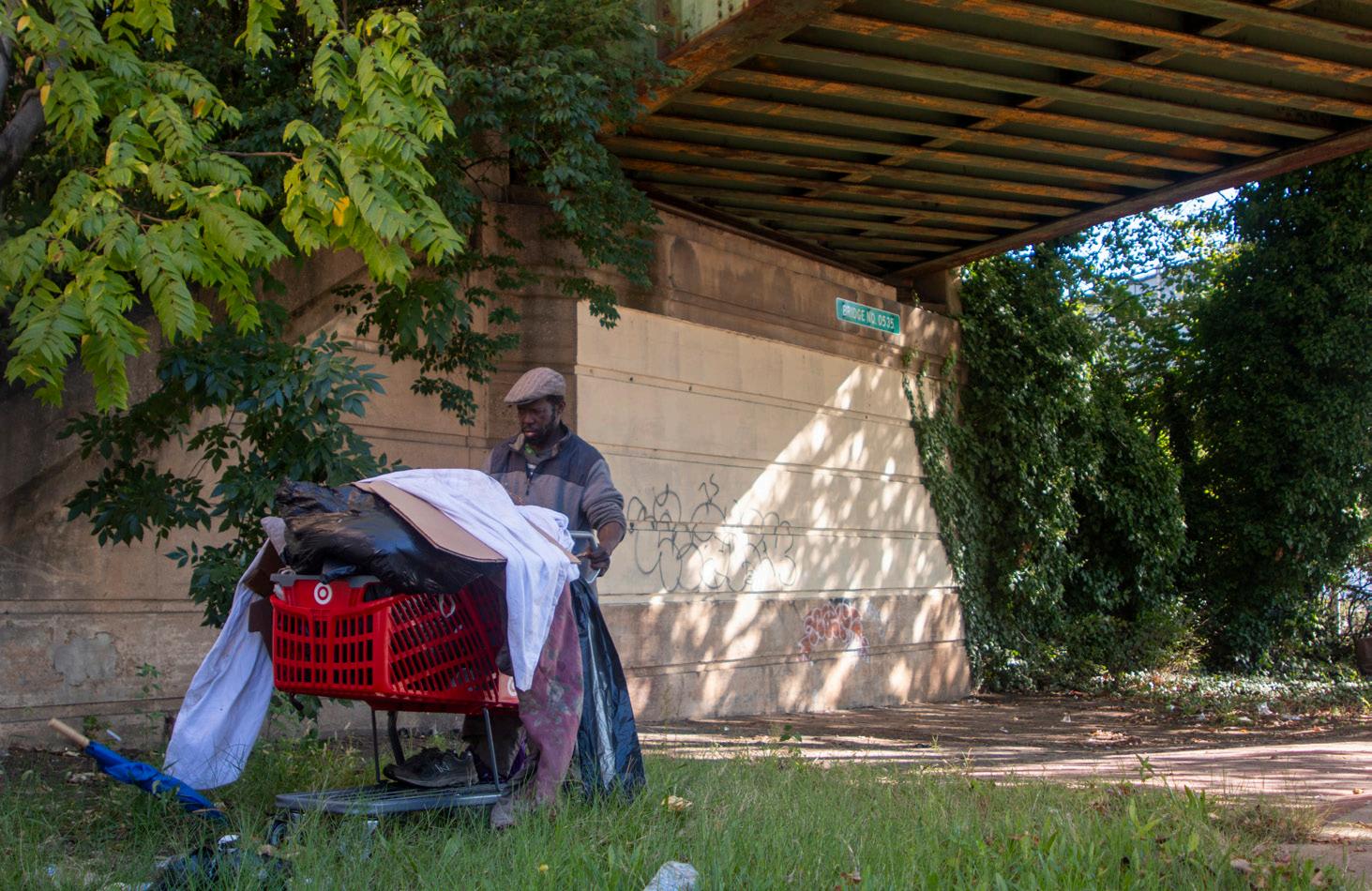
residents who arrived later or had more belongings. They said they aim to reduce the disruption caused by these clean-ups by communicating with residents before and on the day scheduled.
“I think today, we were able to speak with most residents about the purpose of the cleanup and what’s happening,” Abigail McNaughton, an encampment case manager at Miriam’s Kitchen said.“And that doesn’t mean that it’s not stressful for them, but it does mean that people are prepared, and they understand that they’re not being kicked out permanently from where they’re living. And I think that’s why this morning was relatively uneventful.”
The main concern from outreach workers was the lack of communication with nonEnglish speaking residents. While big metal signs were posted by DMHHS on Sep. 20 on the far ends of the hill, much smaller sticker signs in Spanish were only posted three days before the clean-up, after Miriam’s Kitchen advocated for the encampment’s Spanishspeaking residents, according to McNaughton.
Beyond language issues, McNaughton said the standard notice metal plaques the city posts before encampment clearings and closures don’t provide detailed information on DMHHS’s plans. She said the city should specify whether it’s city maintenance work or trash pickup, and if residents will be allowed to move back, so residents can have a clear understanding of what to expect and prepare for.
Currently, the standard sign only includes the date and time the District “will conduct a general clean-up of this public space,” a warning that any property within 200 feet of the sign is subject to disposal, instructions on how to request limited free storage of certain items, and contact information for further information.
“Would it not be in the best interest of that goal to have everyone that is living there understand as much as possible what is happening that day and why?” McNaughton said. “It just seems like an easy step that would improve communication.”
On Oct. 9, city employees were at another encampment on New York and Montana Avenues NE, in a grass patch and underpass area without much pedestrian traffic. They woke up a resident and allowed him to move his belongings before the trash pickup. City employees removed trash piled up in a corner of the grass by the street.
On Oct. 23, a “full clean-up” was scheduled for 1905 Brentwood Rd. NE, but only a Department of Public Works (DPW) truck stopped by to collect the trash bags placed in a corner. D.C. also scheduled a clean-up at an encampment in NoMa on Oct. 22, but Street Sense was not able to attend.
Upcoming encampment clearings: Nov. 6 at 900 Block of 26th St NW (I-66/Whitehurst Exit hill), Nov. 7 at 27th and K St NW (Water Pumping Station), Nov. 8 at 131 M St NE (NoMa MBT Trail), Nov. 13 at Souza Bridge/DDOT Underpass, and Nov. 19 at Anacostia River Walk Trail/M St. SE/Bridge Underpass.
FIONA RILEY Editorial Intern
For people experiencing homelessness, there are few places in D.C. to take a shower — just three public shower locations are open in the city, according to Ward 2 Councilmember Brooke Pinto.
Currently, Pinto said, people experiencing homelessness can only access showers at the Downtown Day Services Center, So Others May Eat, and Mount Vernon Place United Methodist Church, which she said many people can’t easily reach. For laundry facilities, which Pinto described as a “basic need,” the situation is similar. People can use laundry machines at Thrive DC, Shirley’s Place Day Center, N Street Village, and Father McKenna Center, but Pinto said people still lack access to the service. This creates what Pinto calls a “major gap” in access to hygiene services.
“We need to recognize the reality that people have basic needs around using the restroom, using laundry facilities, taking a shower,” Pinto said.

To meet these needs, Pinto recently introduced the “Hygiene and Laundry Access Pilot Program Act of 2024,” which would require District officials to add at least one public shower and laundry facility to each quadrant of the city. The bill is sitting in the Committee on Public Works and Operations and it likely won’t pass before the current council period ends in December. Pinto would be able to reintroduce the bill next year.
People experiencing homelessness have long asked the city to provide better sanitation and hygiene services. During the first few years of the pandemic, D.C. provided portable toilets and handwashing stations near encampments, though the city eventually stopped paying for the services. The People For Fairness Coalition, members of which have lived experience of homelessness, has been advocating for increased public restrooms in D.C. since 2014, and were instrumental in the council passing a bill to authorize pilot programs and conduct research.
Hygiene is one of the issues about which people experiencing homelessness “most frequently” speak to Pinto and her office, which Pinto said prompted her to advocate for increased public access to restrooms last spring. This summer, the city launched a pilot program to install Throne Labs public bathrooms in Dupont Circle and Downtown D.C. During the pilot process, which ran from April through September, Pinto said she heard from more people who struggle to remain clean while living outside, which inspired her to propose legislation that would expand services to include showers and laundry.
Pinto said it’s “essential” people are able to wash themselves and their clothes, especially if they’re applying for jobs or have chronic health issues. She said expanding the number of public showers will help “break down barriers” for people who want to use the facilities but can’t travel too far.
If passed, the bill would require the Department of Public Works to install at least one mobile shower — equipped with a laundry machine and hygiene products — in each of D.C.’s quadrants. Each shower must be open at least 12 days every month for at least six hours a day, with a portion of those times between 3 p.m. and 9 p.m., according to the proposed legislation. In the case of severe weather during a scheduled shift, the city must make a “reasonable attempt” to reschedule the opening hours.
The bill requires the city provide shampoo, conditioner, body wash, disposable razors, washcloths, and towels in the showers. The bill also says the showers should be fully staffed, offer a secure place for personal belongings, and provide laundry supplies.
According to the proposal, the shower and laundry facilities would be operated by local organizations funded through grants from the city. The organizations would then have to collect monthly data on usage by date and time, any vandalism or mistreatment of the space, cleanliness, and user experience.
Pinto said the Neighborhood Well Project, a nonprofit offering shower spaces that piloted in Hyattsville, Maryland, in 2021, helped her imagine how she could implement mobile showers in the District. Omolayo Adebayo, the founder and chief executive officer of The Neighborhood Well, said her goal in offering mobile showers is to “reach people where they are,” especially those who utilize day center hygiene spaces that are closed on the weekends. She said mobile showers make it easier for people to access hygiene services without long commutes, because the nonprofit can place the showers close to neighborhoods.
“I believe our program and shower services allow guests to have a moment of privacy that they may rarely get, and an opportunity to maintain their hygiene in a safe and clean environment,” Adebayo wrote in an email.
In Hyattsville, Adebayo said her team sets up between four and six showers each time they conduct outreach, and creates a shower schedule, with users signing up for a slot in-person the same day. She said many people come to the showers to talk and enjoy the refreshments table the team sets up, even if they don’t want to shower.
“Showers are a small but crucial part of making sure that people maintain healthy hygiene habits, which then aid in helping maintain healthier mental health,” Adebayo wrote.
While public showers don’t eliminate the need to help people experiencing homelessness find a more permanent place to stay, Pinto said they can help people get jobs, maintain confidence, and stay healthy.
“We have to do a better job about providing those services as we continue on our longer-term mission of supplying housing to everyone,” Pinto said.
The countdown is over, and, hopefully, we’re about to have a historical event of electing a female president. The U.S. is behind compared to other nations, like the United Kingdom, which have elected a female prime minister to run their country.
It’s about time we have a female president run our country. This country had very few male presidents recently who, in my opinion, looked out for all people. Most presidents only looked out for big corporations, and some presidents suddenly had big bank accounts after leaving office.
Larry Hogan and Angela Alsobrooks ran for the U.S. Senate. Alsobrooks is more down to earth with the people. She talks about the cost of living hurting everybody. This is why we have a growing number of people ending up homeless in the whole country. Homelessness is a huge issue that can’t be ignored.
Food prices have gotten out of hand. So what if you raise SNAP benefits? They still don’t cover all of your food needs. The packaging industry literally came up with the idea to create smaller bags of sugar or sell half of a bag of potato chips. The price of things is clinking upwards instead of downwards. Paychecks aren’t matching rents, mortgages, or food.
It seems some of our elected officials are only interested in lining their pockets with big bucks by passing bills for big corporations.
What I want to see in the next three years is a lot more progress on food prices — either they come down or companies bring back the old pound of sugar, flour, etc. for these outrageous prices. Put people into homes and apartments that match their income. Nobody was born in the streets or in a tent.
Abortion laws should be put back in place. A lot of women will be dying because in some states, it’s not longer legal for professional doctors to perform abortions. Women will go find someone who isn’t a doctor to do it.
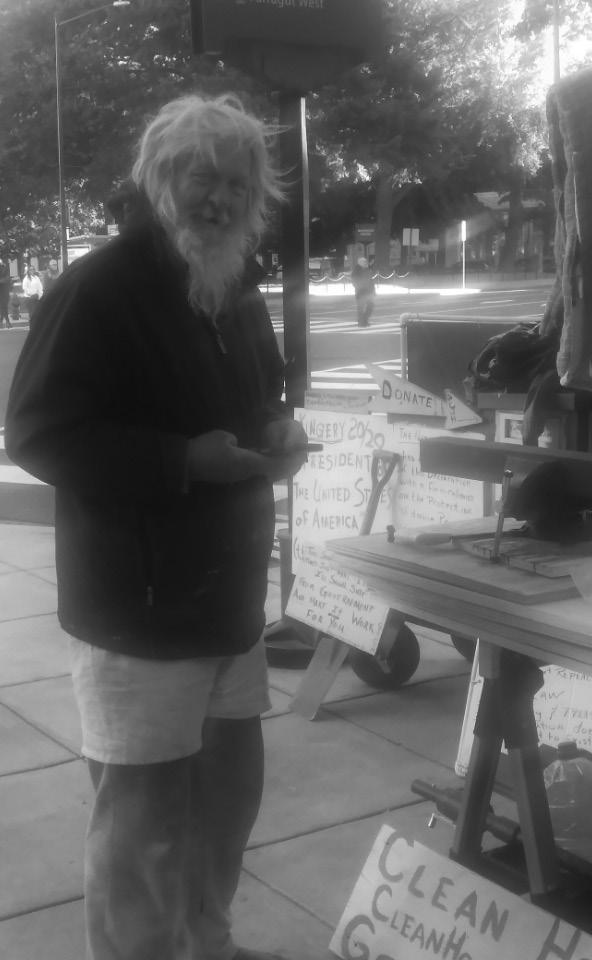

Gun laws are an issue. Anybody can get a gun. The Second Amendment was talking about “musket guns,” not magazines that can kill 20 or more people in less than five minutes. This gun issue has been going on since John F. Kennedy was president and Congress still can’t come up with a plan to get guns off the streets. I would like to see more bills passed for us little people, not big corporations!
Aida Peery is an artist/vendor with Street Sense.
DANIEL KINGERY
This is about the “street war” as opposed to the courtroom battles, but this does reference a few of the connected court issues.
In early July 2018, I came to D.C. for “the long haul.” The first (nearly) two years were in Lafayette Square Park.
As per my habit of picking up trash and trying to leave the area cleaner than when I arrived, I began picking up trash in the whole park. Eventually, Park Police arrested me out of Lafayette Park for “aggressive panhandling.” This involved me setting up, at that time, an empty peanut container with a donations sign attached to it.
Throughout the day, I would do as I continue to do; “Howdy.! Have a good day. Thank you.” I didn’t even mention the donations container unless someone asked about where I wanted it. I spent a day or two in jail before arraignment. I was released. I tried to get my property. I called for hours. I stopped by during the hours it was open to the public. When I got there, they said the “only two” people who could help were BOTH missing in action. Nowhere to be found.
For my second attempt to get my property, I called in advance to make certain someone would be there. I was assured they would. When I got there, they both seemed to be called away.
Fast forward to my May 22, 2024 arrest. I spent two weeks in jail. I spent nearly two weeks trying to get help removing my stuff from Park Police property. The person helping was supposed to show up with a much larger vehicle, which did not happen.
This time, those helping made calls before we left. The property officer was supposed to be there. The couple and I got to the automatic door that was locked. We stood around
and pressed the call box and only got a recording of a number to call; but no response from inside. After several more minutes, all three of us went back to the car, sat for a while, then started backing out.
We then saw an officer exit the employee-only door at the other end of the building. He assured us the property officer was there, and he got the officer’s attention through the clear glass walls and doors. But the officer was reluctant to give out any property without specific types of ID. The jail ID did not seem good enough to get my property back, though the police took the property without any type of ID. I got one bag, and I made arrangements with these two helpers and at least one other person to get the remainder of my property, should I most likely be back in jail again for the same charges. I was in jail for another three weeks. I got out, only to find that none of the three made any efforts to retrieve my property.
Then, I started making my own calls. I began calling Friday afternoon, after my release from jail and walk back to the McPherson area. Then, I called several more times the next week to find out what the problem was. At the moment I have asked several help-the-homeless organizations to see if they would get the same response.
For a system that is supposed to turn out better members of society, this system is full of “mind game” officers. Dealing with any government personnel is like dealing with a 2-yearold on steroids. They say “You can take it all the way to the Supreme Court,” to which I add, if the person has enough time and money to get the case there; but only to learn that SCOTUS still lives and works according to tyranny and despotism.
STARCHILD BLK Artist/Vendor

Heyyy popular people.
I am a queer, African American, fem-presenting individual. My pronouns are she, he, and they.
I am the founder of @POPSTARPRESENTS, a fashionopinionated artist, painter, fashion designer, tarot card reader, and trendsetter.
I was born on Oct. 27, 2000, in Montgomery, Alabama. I started drawing at age 6 and customizing clothing and furniture at 14.
@POPSTARPRESENTS is a platform for marginalized groups to display the artistic talents of all media, to form a judgment-free zone, and to connect with people of the same community and the same subgenres. African Americans make up only 14% of Americans and a fraction of us are queer or fems. I have always been someone who’ll stand out and brighten the room just by being myself, despite criticism from the naysayers and the stereotypes.
I moved to Northwest Indiana in 2001, then to the DMV in 2020, where I’ve seen Black excellence like no other and people of color thrive. After moving back home, I was determined to show the people of Gary, Indiana the same by displaying talented individuals from all over the world, the underworld, and the galaxy. I hold my head up every day for the ones who count.
Star da philosopher: Maturing is realizing people with mental imbalance deserve help, even when others think they’re unlikeable. Mental imbalance (also called mental illness) encompasses a range of conditions that affect mood, thinking, and behavior. But, per my therapist, “it should not be called mental illness because that implies you can’t get better.”
WILLIE FUTRELLE Artist/Vendor

Dear reader,
WARREN STEVENS Artist/Vendor
Autumn leaves are turning colors. Fall weather is here already. It’s leaf raking time. The kids are in school now. Parents finished shopping for school supplies and clothes for the fall and winter.
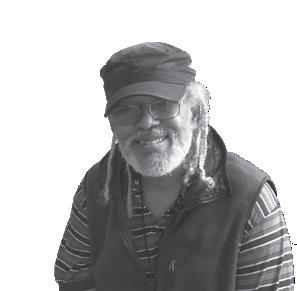
Voting happened on Nov. 5. I hope and pray they won the election, so they can take back the White House in 2025. Then people can have good-paying jobs. I’m hoping the economy can grow strong and give us good raises.
I retired in January 2005. We all got buyouts, which was a good thing to live on. When I was young, at the age of 24, I worked at my first job as a mail clerk until I got my first award.
Halloween was Oct. 31. The young people celebrated Halloween by wearing their costumes and masks. Adults went to dinner and danced at bars and clubs. Kids went trick or treating. When I was young, I used to dress up in a custom scarecrow mask and go to Halloween parties with friends. It was so much fun. Happy Halloween. I hope you had fun on this spooky night and stayed safe.
You are reading a Street Sense paper. Thank you for supporting your community! As vendors and artists, Street Sense provides many resources to elevate our lives. Street Sense Media is so much more than a paper. It has a computer room that provides vendors with a way to work or search for more opportunities. Just having access to a restroom you don't have to buy something to use is a huge blessing! Having an area away from the elements from 9 a.m. to 4 p.m. that doesn't care if you fall asleep also brings peace of mind. Our workshops provide income opportunities and training in skills that some have never had access to. Learning poetry, illustration, communication, and marketing skills is all possible at Street Sense and made easier with access to others who can share their learning styles.
Having a case manager who truly listens and guides you through whatever process you need help with also removes loads of anxiety and unneeded stress. Many of my coworkers know tried and true methods of surviving on the street and how to raise yourself up from the bottom. Their advice kept me fed with three meals a day for two weeks with only $2 to my name. They helped direct me to the housing program. Without Street Sense Media, I would not be a D.C. citizen! They helped me get my birth certificate to transfer my license and help others obtain an ID. This nonprofit is a wonderful organization that truly is trying to end homelessness! Thank you Street Sense Media!!
It should be noted, though, that Street Sense Media operates from the second floor of The Church of the Epiphany. A huge THANK YOU to Epiphany!! This blessing to Washington needs to be recognized by our city and mayor for providing so much. The third floor in the winter is a shelter overnight and a space to organize during the day. Small groups use it to practice theatre or music or gather for fellowship. On the first floor, AA and other groups organize to support those in the community in a safe environment. Every Tuesday there is a FREE concert in the church, where the acoustics are designed for everyone to enjoy a joyful noise! Sunday from 7:30-9:30 a.m., Epiphany offers breakfast and fellowship. It even has vegetarian options! You do not have to attend the church or be a member.
Reverend Glenna truly follows Christ's example to DO good for others. She leads a wonderful community and fantastic resources center for the city of Washington, D.C.! There are many reasons to give thanks to so many who are struggling or lost for direction. I would not have been able to focus on my path and purpose since moving to D.C. if not for Street Sense Media and the Church of the Epiphany!! Thank you to them!
Also, thank YOU, readers and supporters! When we remember that we are all human and treat each other equally, we can grow positively as a society and civilization!
VENNIE HILL Artist/Vendor

Today, I no longer cry. I no longer have sleepless nights. I can rest at night and I don’t have nightmares. In the past, I couldn’t sleep at all. I could hardly eat. I couldn’t even breathe my husband’s name without breaking down. I have his pictures all over my wall because I rent a room from my cousin and I look at them every day. I can look at them without crying, so it does go away.
Somehow, I still remember the good times that we had, and I also remember the bad times. All in all, I think it was worth it, the 13 years I spent with him. God blessed me because I found a good man. He was happy. He was kind. He was religious. He was honest most of the time and good to me. It was hard to give that up. To know that there’s not a man out here like that, who can make me feel the way that he did. It’s very hard on me. But I’m getting up today. I’m working more at Street Sense since I’m getting better. I’m stronger than I was. And if it wasn’t for God, I don’t think I would be able to do this alone. I’ve been praying to him and asking him to forgive me for the things that I said wrong to Harmony. Before I let him go, I didn’t get a chance to apologize. And I think that’s what hurts the most, that I wasn’t able to say goodbye. Because he was unconscious when I got to the hospital, you know. His brain was already dead so there wasn’t nothing I could say that he could hear. But I tried to tell him, “Please don’t leave me.” But it was God’s will and I believe he got his wings in heaven. But I thank God for blessing me with his time in my life because it was time well spent.
So, if you are going through something where you’ve had a bad loss or you’re unhappy right now and you don’t want to deal with the pain and you think you can’t go on, believe me, you can. The person you lost would want you to go on and struggle harder for a better life than you had before they were there. I know when my husband looks down on me he’s saying to himself, “Please stop drinking and get your life together ‘cause I’m no longer there to help you.” And I’m trying my best to handle that request the best way I can. So, again, if you are having trouble dealing with the loss of a loved one, all I can tell you is to get down on your knees and pray. Ask God to take the pain away for a moment until you can think straight and realize the person you lost loves you just as much as you love them, and they want you to live a better life, so when they see you again they can smile knowing their passing built you up instead of tearing you down.
DOMINIQUE ANTHONY Artist/Vendor
Content warning: Abuse

I never thought I was dealing with domestic abuse. I was abused by someone who I was in a relationship with. He treated me really badly. He would hit me, fight me, and sometimes cuss at me. He put me down all the time and never supported me at all. He gave me Hep C and said it was my fault that he didn’t know he had Hep C, like it was okay. And then he called the mother effing police because I hit him back for putting his hands on me, hitting me in the face, and giving me black eyes. And I got locked up for an assault charge. He treated me like crap on his shoes and then said I was a serial cheater. He didn’t give two effs about me or my feelings. I stayed with his ass for three years, and then I left his ass. I had met another effed-up person. He did a lot of crap to me, like sleeping with my ex-bestie, and then telling me it was my fault, cause I have a lot of problems. Someone tried to warn me about his low-life ass and I didn’t want to listen. I learned the hard way.
Once I finally stopped talking to him, I was hurt for a moment and depressed. I learned how to heal myself and deal with my feelings, and started doing some self-care stuff like reading books, watching TV, going outside, doing community service, and learning to forgive myself.
I saw a person I had a crush on when he had long beautiful dreadlocks. I asked him what happened to his hair, and he said he had to cut his hair. We exchanged numbers and we started talking on the phone for two years. We decided to be in a relationship and we have been together but I didn’t receive love from him. It was very hard and took a lot of time. I was there to pick up the pieces, and thought it was ok to be hurt and learn how to forgive people who hurt me. It takes time to heal and learn to love someone who has my back, knows how to deal with me, keeps me calm, and makes me be real and focus on myself, school, work, my writing, and being active in the community.
ANDRE BRINSON Artist/Vendor

I finally have my own place! But selling Street Sense, which I love to do, is still my only “steady” income. I can’t work at anything else right now because of my heart surgery. I can’t drive because of the police department, SMH. That is unsettling because I’ve worked since the age of 17. But I’m still pressing hard to stay strong and keep myself positive throughout these trying times.
I thank all my customers, whom I call my friends because when we meet each other, I consider us friends. And I thank you all again in this season of thanks.
I always will speak about the homeless situation. As fall fades and winter approaches, we need to remember that cold is deadly for those out on the street. I know because, on one Christmas Eve, I nearly died behind a building.
I also want to thank Street Sense for humbling me and changing my life for the better. Believe it or not, it truly has. Peace and love to all.
GRACIAS GARCIAS Artist/Vendor

Where the night is going, where the day comes from. Where your batch of honor comes with the shiny bling, There are wild dogs, watchmen, guns, and Uncle Tom.
The picture stares and tightens his jaw full of gum. Go downtown with the mob where the fat lady sings. The priest and his layman wait for Jesus to come.
Try emptying your pockets, so you give me some. No marks in the bullet when the sling gun slings While god does his duties, some go buy some rum.
Turn your cheek not only for a kiss from mom. The native parade is the great new thing! A kid pisses on a flaming bush while the hummingbird hums.
Surrender to no one; no one’s homeless bum. No throne in the park for the sitting king. Vastness of the city; sweetness of the plum.
Few men get their houses for a worthless sum. That rope that’s there hanging which necks boldly claim. Where the night is going; where the day comes from. Where goodness can take me, that place I call home.
RONNELL WILSON
Artist/Vendor
Forgiveness = Forgiving
Forgiveness = Love
Forgiveness = Care
Forgiveness = Dare
Forgiveness = Scare
Forgiveness = I declare
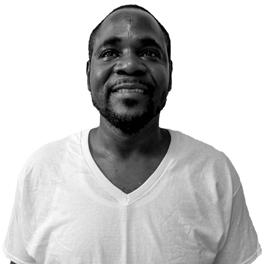
Forgiveness = Being blessed by the best
Forgiveness = Jesus over the rest…
Grudge = Hate
Grudge = Debate
Grudge = Attitude
Grudge = Sometimes rude
Grudge = So uncool
Grudge = Less hugs
Grudge = Getting it from the mud
Grudge = You’ve judged
JENKINS DALTON
Artist/Vendor
Homelessness is a crisis that causes pain, but the payment of the community hears it. A word of introduction for Street Sense: You have no money, you have no food, you are disabled, you are in need, whoever you are. Ask for Street Sense. Get acquainted with our community.
ANTHONY CARNEY Artist/Vendor
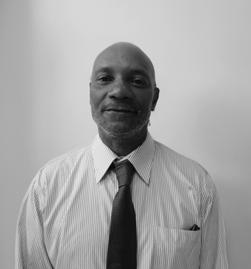
My higher power helped me get my housing voucher. It took 20 years to receive my voucher. I hung in there for 20 years with the help of my mother. I used her address and phone and slept on the street for 20 years. It’s no fun.
I asked my higher power for an apartment with a balcony and a dog. I got both the balcony and the dog. Now, I need furniture for my apartment. To my customers, would you please help me get furniture for my apartment by making a donation and buying papers? Thanks in advance for your support and donations. Spread love.
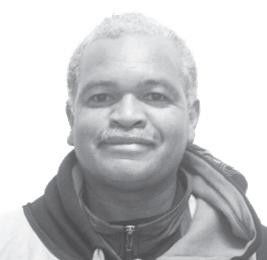
Daniel said: I didn’t know that Labor Day was in September. Daniel said: The word labor means, to me, to work very hard that day.
Daniel said: The only thing in my life is to never stop making that green money.
Daniel said: I don’t think any job is better than another job you had in the past.
Daniel said: If I was Joe Biden, I would like to see every woman and every man get paid the same when they work hard.
Daniel said: I will pray for all of you, seven days a week.
KYM PARKER Artist/Vendor
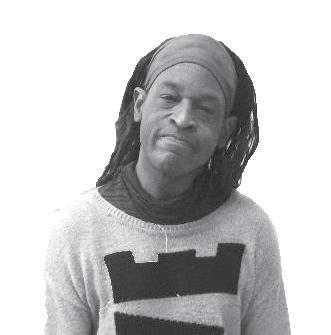
Homelessness to me is an existential part of grace. It is the purity and base of what is. It’s God’s blessing. It’s God’s place and path she places us on. Through Her intricate life, we learn things like how to be helpful, how to love others, how to listen, learn, and love. So now we all live in this place of emptiness. We all live in this place of pain. Some of us are serene about it. Some feel pain. All know God’s grace, mercy, and kindness are showing through.
So take that pain, that grief, and let it go.
Homelessness. I was at that point for two years. To me, it helped me out a lot. I grew as a person of God. I learned helping others and asking for help didn’t mean I was weak. I am strong and beautiful and understanding. The caring base that carries me through the day was always Her love for me. She made me strong. She made me beautiful. She made me weak. There were times when I didn’t know where I was going mentally. God’s vast love helped, and it’s still doing it. I’ve learned patience, humility, and love for all of Her children. When you ask for help, She will give it to you. When you talk to Her, She will always pay attention. God’s path, God’s plan, is to never hurt Her children. So knowing that, I gave my life to Her. And now I am a better person for it. I am Wonder Woman. Homelessness, to some it’s not a blessing. To some it is. Those who show love, show respect, compassion, and empathy, get it. They all get it. So know your path. Know your life. And know the state you’re in now will pass. Just because you are homeless, you are not without a spirit. A spirit means you have a soul. Your soul is the strong thing that can build mountains.
MICHEAL PENNYCOOK
Artist/Vendor
I never thought I would be homeless in my 40s. My body and mind are stressed out. I stay in my storage, cause that’s all I can afford. I go to the U-Haul every day to try and catch moving jobs. I used to make about $2,000 a month on moving jobs, painting, and landscaping. Now it’s just me trying to compete with 30 guys, and I have no chance of getting a job. For some reason, America has given the colored man, a.k.a Black men, a bad reputation. So when I am trying to get a job they say they don’t need any help. Then they go into U-Haul and come out, and hire someone else.
It’s like a bad dream, but I keep on trying to get a job. I will never give up. I have a 13-year-old son, Mikey Jr., and I have not seen him in two years. I talk to my son on the phone. I really want to be a father to my son, but I can barely take care of myself. The good thing is my son is with my aunt. So he’s in good hands. Hopefully, things will get better and I can be in my son’s life.
ROCHELLE WALKER
Artist/Vendor
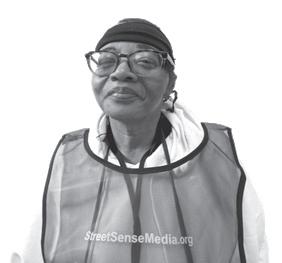
A bulletin to Fox5 News and Channel
Four News: I want to take you to a place that provides meaningful community service by feeding homeless people at 6 p.m. every Wednesday. Its name?
Ebenezers Coffee House at 201 F St. NE.
I want to thank Ebenezers Coffee House for its delicious food, water, and drinks. I also want to give a shout-out to the National Community Church for supplying the exceptional food with 100% of the profits going to the homeless on the street.
And thanks to all the volunteers. To people on the street: if you are in shelters or living on the street, come on over to Ebenezers. Have a plate. Take a plate with you. Best of all, eat until you are full. This is the place to go and the place to be!
REGGIE BLACK Artist/Vendor
My physical expenditure of
Mental effort is especially difficult
Physical activities giving birth
To such a period
The economic group comprising
Of those who manual labor
Wages work for organizations
And officials
The party, group of workers
Requiring process
A product
That exerts one’s power of body or mind
Painful or strenuous effort
The movement was a great effort
Suffer from disadvantage
The pitch or roll heavily
Treat or work out in detail
We suffer from distress
Burden to produce
Strive to achieve
Effort to relate to constituting
Political parties held to represent
The interest of the workers
Made up to be organized in groups

WAYNE HALL Artist/Vendor

I tend to think of fall as the last quarter of the year. That said, still being homeless at this time emphasizes what a roller coaster 2024 has been. I take the ups from the downs and focus on carrying it over to the next year to improve my life and my well-being. An up this year was going with the flow and taking peoples’ advice. I tended not to listen to those who steer me toward shelters because of previous personal experiences in them. But that changed the day my sleeping spot was compromised. Someone told me a shelter with permanent beds was opening that day. I listened. Now my days have more stability and structure so I can be happy and enjoy my life.
We have a month and a half before 2025 starts, so I figure if I maintain my daily routine I should remain happy with my life and current situation moving into the new year.
This always has been my end-of-year process. Around Thanksgiving, I make my goals for the next year and try to get a head start on crushing those goals, whether it’s saving for a trip, losing weight, or moving to a new state. The fall always is the time to focus on building the consistency and the discipline you need to make the proper changes in your life.
Foilage refers to The leaves changing
Color seen in Autumn trees
Beautiful
Vibrant
Color
Red orange
And yellow

Across
1. Embargoes
5. Channel across the Channel, briefly (2 wds.) (3,2) (initial./abbr.)
10. Actor Pitt
14. “___ Baby” (“Hair” song)
15. Garlicky mayonnaise
16. Bananas
17. File a tax form that generates a significant refund, say (4 wds.) (4,1,4,6)
20. “Gladiator” setting
21. Bit of parsley
22. Athletic supporter?
23. Uncle Sam’s collection agcy. (abbr./ initialism)
25. Boy
27. Having no opportunity - as a linebacker - to make interceptions, say (3 wds.) (5,6,4)
36. Priestly garb
37. Waste maker
38. Debonair
39. Takes to court
41. Bakery offering
43. Smooth-talking
44. Sun Valley locale
46. Civil rights org. that has annually presented Image Awards since 1967 (abbr./ init.)
48. Arapaho foe, or versatile vehicle, for short
49. Signed off on the final contract to install a sidewalk and driveway, say (3 wds.) (8,3,4) (HATED MEN ELECTED anagram)
52. “When truth is replaced by silence, the silence is a ____”: Yevgeny Yevtushenko
53. It needs refinement, but you can dig it
54. Hooter
57. Neck discomfort
61. Distributes cards
65. Review a spending plan while being profligate, say (4 wds.) (2,4,3,6)
68. After-bath wear
69. Kind of layer
70. Gutter locale
71. “Anything ___?”
72. Dress material.
73. Big bore
Down
1. Ole Miss rival, familiarly
2. What “These 2 guys walk into...” in at least a million bad jokes (2 wds.) (1,3) (ARAB anagram).
3. Big name in sneakers
4. Welcomed at the door (2 wds.) (4,2)
5. “It’s in the ____!” (“You can’t miss!)
6. “About the author” pieces
7. Condo alternative
8. Rude email or texting response to a communication or attachment thought to be too lengthy (abbr./initialism)
9. Macho
10. Short order sandwich, for short (abbr./ initialism)
11. Beat badly
12. A lot of lot
13. Word that can go after or before “well”
18. “Garfield” strip exclamation of frustration
19. An old school alternative to 18-Down
24. Tiff
26. Hemming, the magician or Emhoff, the first second gentleman
27. Word that may precede “instinct” or “training”
28. Avoid
29. Construction girder (1-4)
30. All together (2 wds.) (2,3)
31. Prized violin, for short
32. Assail (2 wds.) (3,2) (TASTE anagram)
33. Comparison shopper’s quest
34. 1980 Tony winner
35. Take part in a mutiny, e.g.
40. Author/illustrator Silverstein
42. Sound rebound
45. Where Lutzes may be flutzed (2 wds.) (2,3)
47. Concealed, in Cannes (Fr.) (sounds like a well-regarded Indiana university)
50. Holy ____ (common description of a bratty kid)
51. Conveyed ownership, as to lands and other properties
54. Shrek, e.g.
55. Felt once, perhaps
56. Arcing shots
58. Chichén ___ (Mayan city)
59. Bok ___ (Chinese cabbage)
60. Bingo relative
62. Biology lab supply
63. First name in jeans
64. Increase, with “up”
66. Lead character in “Vicky Cristina Barcelona”?
67. “____-Hur”
This crossword puzzle is the original work of Patrick “Mac”McIntyre. It is provided to us courtesy of Real Change News, a street paper based in Seattle, Washington. Learn more about Real Change News and the International Network of Street Papers at realchangenews.org and insp. ngo.
You Can Read ‘em Two Ways Puzzle by Patrick “Mac” McIntyre
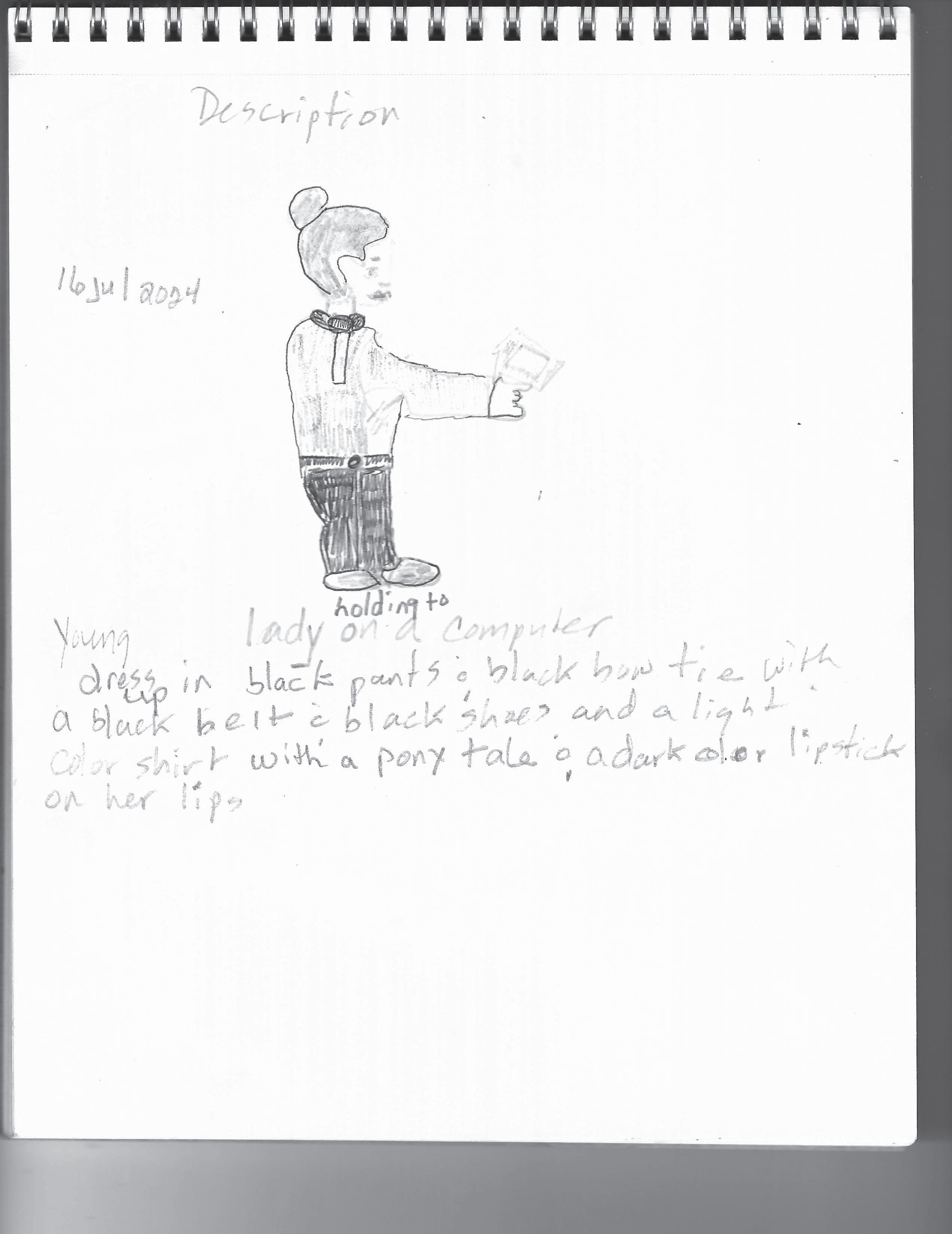

Housing/Shelter Vivienda/alojamiento Case Management Coordinación de Servicios
Academy of Hope Public Charter School
202-269-6623 // 2315 18th Pl. NE
202-373-0246 // 421 Alabama Ave. SE aohdc.org
Bread for the City 1525 7th St., NW // 202-265-2400 1700 Marion Barry Ave., SE // 202-561-8587 breadforthecity.org
Calvary Women’s Services // 202-678-2341 1217 Marion Barry Ave., SE calvaryservices.org
Catholic Charities // 202-772-4300 catholiccharitiesdc.org/gethelp
Central Union Mission // 202-745-7118 65 Massachusetts Ave., NW missiondc.org
Charlie’s Place // 202-929-0100 1830 Connecticut Ave., NW charliesplacedc.org
Christ House // 202-328-1100 1717 Columbia Rd., NW christhouse.org
Church of the Pilgrims // 202-387-6612 2201 P St., NW (1-1:30 on Sundays only) churchofthepilgrims.org/outreach
Community Family Life Services 202-347-0511 // 305 E St., NW cflsdc.org
Community of Hope // 202-232-7356 4 Atlantic St., NW communityofhopedc.org
Covenant House Washington 202-610-9600 // 2001 Mississippi Ave., SE covenanthousedc.org
D.C. Coalition for the Homeless 202-347-8870 // 1234 Massachusetts Ave., NW dccfh.org
Father McKenna Center // 202-842-1112 19 North Capitol St., NW fathermckennacenter.org
Food and Friends // 202-269-2277
(home delivery for those suffering from HIV, cancer, etc) 219 Riggs Rd., NE foodandfriends.org
Foundry Methodist Church // 202-332-4010 1500 16th St., NW foundryumc.org/idministry
Identification services
Friendship Place // 202-364-1419 4713 Wisconsin Ave., NW friendshipplace.org
Georgetown Ministry Center // 202-338-8301 1041 Wisconsin Ave., NW georgetownministrycenter.org
Jobs Have Priority // 202-544-9096 1526 Pennslyvania Ave., SE jobshavepriority.org
Loaves & Fishes // 202-232-0900 1525 Newton St., NW loavesandfishesdc.org
Martha’s Table // 202-328-6608 marthastable.org 2375 Elvans Rd, SE
2204 Martin Luther King Ave. SE
Miriam’s Kitchen // 202-452-8926 2401 Virginia Ave., NW miriamskitchen.org
My Sister’s Place // 202-529-5991 (24-hr hotline) mysistersplacedc.org
N Street Village // 202-939-2076 1333 N St., NW nstreetvillage.org
New York Avenue Shelter // 202-832-2359 1355-57 New York Ave., NE
Patricia Handy Place for Women 202-733-5378 // 810 5th St., NW
Samaritan Inns // 202-667-8831 2523 14th St., NW samaritaninns.org
Samaritan Ministry 202-722-2280 // 1516 Hamilton St., NW 202-889-7702 // 1345 U St., SE samaritanministry.org
Sasha Bruce Youthwork // 202-675-9340 741 8th St., SE sashabruce.org
So Others Might Eat (SOME) // 202-797-8806 71 O St., NW some.org
St. Luke’s Mission Center // 202-363-4900 3655 Calvert St., NW stlukesmissioncenter.org
Thrive DC // 202-737-9311 1525 Newton St., NW thrivedc.org
Unity Health Care unityhealthcare.org - Healthcare for the Homeless Health Center: 202-508-0500 - Community Health Centers: 202-469-4699
1500 Galen Street SE, 1251-B Saratoga Ave NE, 1660 Columbia Road NW, 4414 Benning Road NE, 3924 Minnesota Avenue NE, 765 Kenilworth Terrace NE, 850 Delaware Ave., SW, 3240 Stanton Road SE, 3020 14th Street NW, 425 2nd Street NW, 4713 Wisconsin Avenue NW, 2100 New York Avenue NE, 1333 N Street NW, 1355 New York Avenue NE, 1151 Bladensburg Rd., NE, 4515 Edson Pl., NE
Washington Legal Clinic for the Homeless 1200 U St., NW // 202-328-5500 legalclinic.org
The Welcome Table // 202-347-2635 1317 G St., NW. epiphanydc.org/thewelcometable
Whitman-Walker Health 1525 14th St., NW // 202-745-7000 1201 Sycamore Dr., SE whitman-walker.org
Woodley House // 202-830-3508 2711 Connecticut Ave., NW
For further information and listings, visit our online service guide at StreetSenseMedia.org/service-guide
Capital Grille // 1005 7th St. NW
Part-time
A busser will deliver an exceptionally distinctive dining experience by ensuring the dining room, lobby and service area are clean, stocked and visually appealing. A busser will be a team player throughout the restaurant by assisting servers in properly serving food and beverages while also clearing, cleaning, and resetting tables for the next guests.
Required: N/A
Apply: tinyurl.com/busserCapitalGrilleDC
Team Member
Whole Foods // Washington D.C.
Full time/Part-time
Whole Foods is currently hiring for a variety of roles with various schedules. They have full-time and part-time opportunities, depending on the role and team. Apply once to be considered for openings at this location!
Required: Must be able to lift 50 pounds. In an 8-hour workday: standing/walking 6-8 hours.
Apply: tinyurl.com/DCWholeFoodsTeamMember
Resident Monitor
Community of Hope // Washington D.C.
Full-time/Part-time
As a resident monitor, you will be essential staff ensuring the safety of the building, enforcing resident rules, serving as a part of the emergency response team, and communicate with case managers to ensure that clients are receiving the case management services that they need.
Required: High school diploma or GED
Apply: tinyurl.com/ CommunityofHopeResidentMonitor
